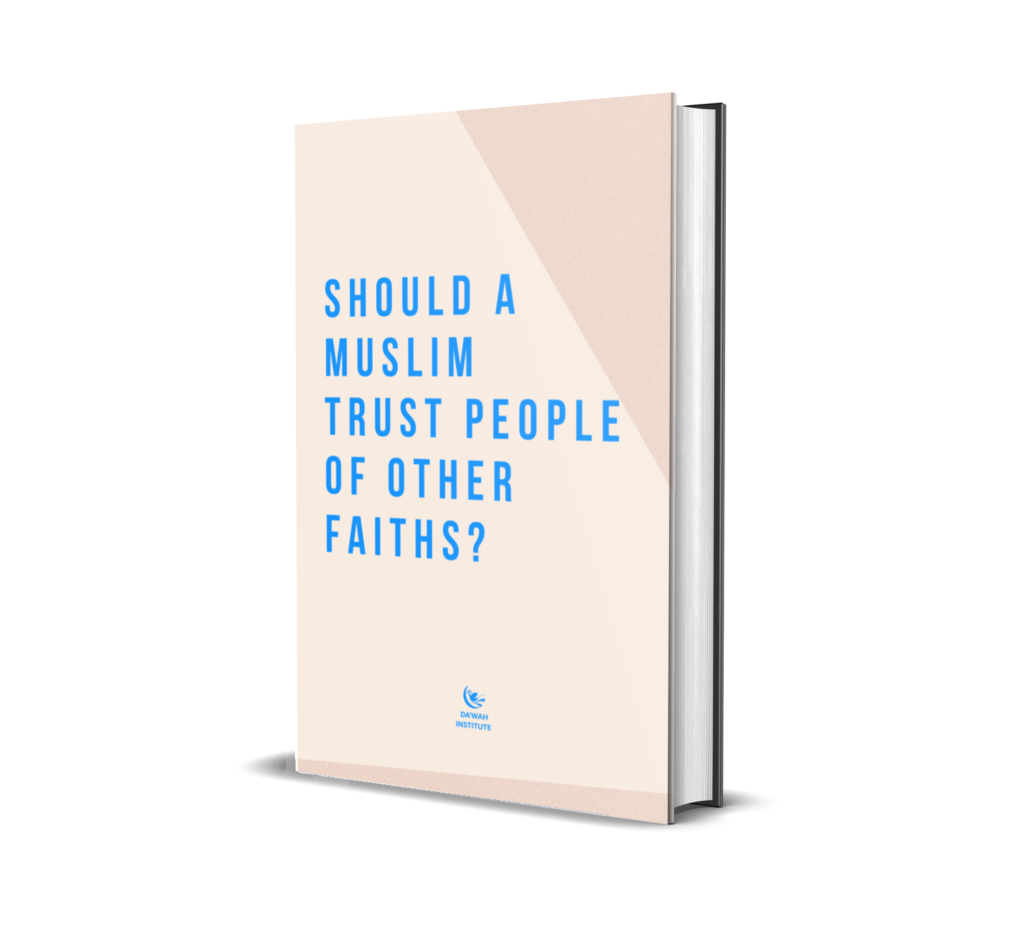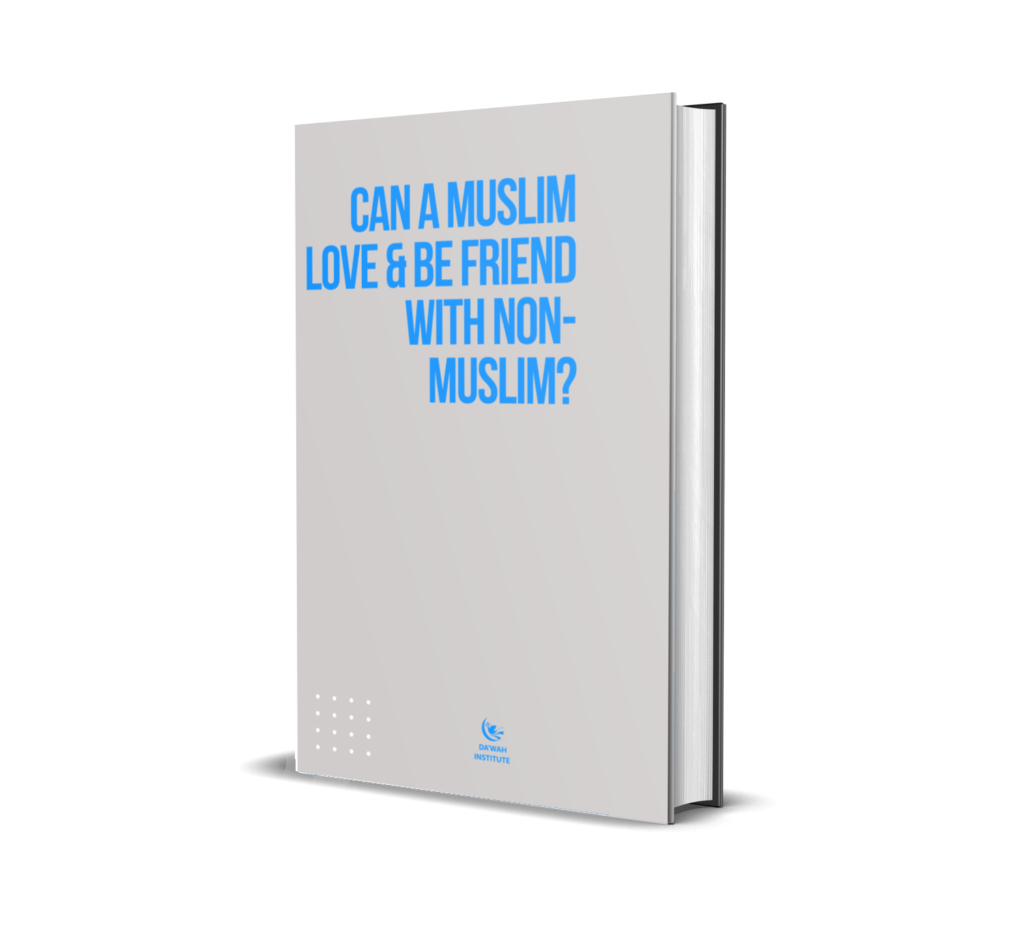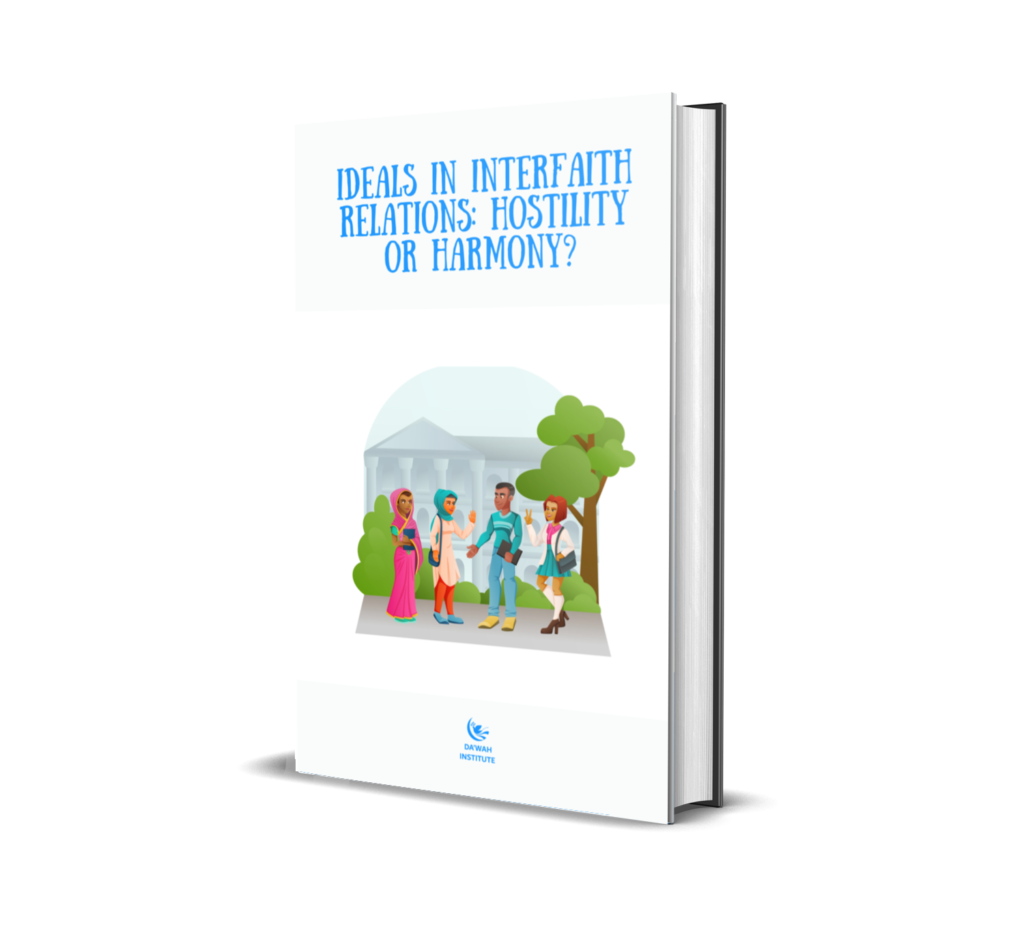Brave-Tan Articles
https://dawahinstitute.org/wp-content/uploads/SHOULD-A-MUSLIM-EXCHANGE-Gifts-WITH-NON.pdf Some Muslims are of the opinion that it is not acceptable to give or receive presents from people of other faiths. As a result, they neither offer nor accept gifts from Jews, Christians and others, including during their religious…
https://dawahinstitute.org/wp-content/uploads/SHOULD-A-MUSLIM-SHOW-HOSPITALITY-AND-VISIT-NON.pdf Some Muslims are of the opinion that visitation to and hosting of people of other faiths is not acceptable in Islam. As a result, they are unwelcoming and inhospitable to non-Muslim strangers, friends and relatives and even refrain from…
https://dawahinstitute.org/wp-content/uploads/SHOULD-A-MUSLIM-TRUST-PEOPLE-OF-Other-Faiths.pdf Some Muslims believe that Islam teaches that Muslims should not trust non-Muslims simply on account of the difference in faith. As a result, they avoid and discourage others from having business and other dealings with people of other faiths….
https://dawahinstitute.org/wp-content/uploads/CAN-A-MUSLIM-LOVE.pdf Some Muslims think that they are not expected to be friendly or jovial with people of other faiths. As such, they stay distant from non-Muslim colleagues, neighbours and others. Is a Muslim permitted to be friendly with people of…
https://dawahinstitute.org/wp-content/uploads/IDEALS-IN-INTERFAITH-RELATIONS.pdf Some believe that Islam prescribes that Muslims should be in a permanent state of enmity with people of other faiths, irrespective of their disposition towards Islam and Muslims. What is the ideal and normative relationship that Islam prescribes between…
https://dawahinstitute.org/wp-content/uploads/SHOULD-A-MUSLIM-CALL-A-NON.pdf Some Muslims call Christians and other non-Muslims by names such as Kafir (in Arabic), Arne (in Hausa), Kirdi (in Kanuri), etc., which these people regard as insulting. Since Islam is interested in peaceful coexistence, should Muslims call people of…
Some Muslims believe that modern-day Jews and Christians should not be regarded as “Ahl al-Kitab (People of Earlier Revelation)” because of the corruption of their scriptures and their belief in the Trinity, the sonship, divinity and crucifixion of Jesus, etc….
Some Muslims view only Jews and Christians as Ahl al-Kitab and therefore closer to Muslims than people of other faiths. Who are the Ahl al-Kitab referred to in the Qur’an and Hadith? How are they recognized, and do they include…







